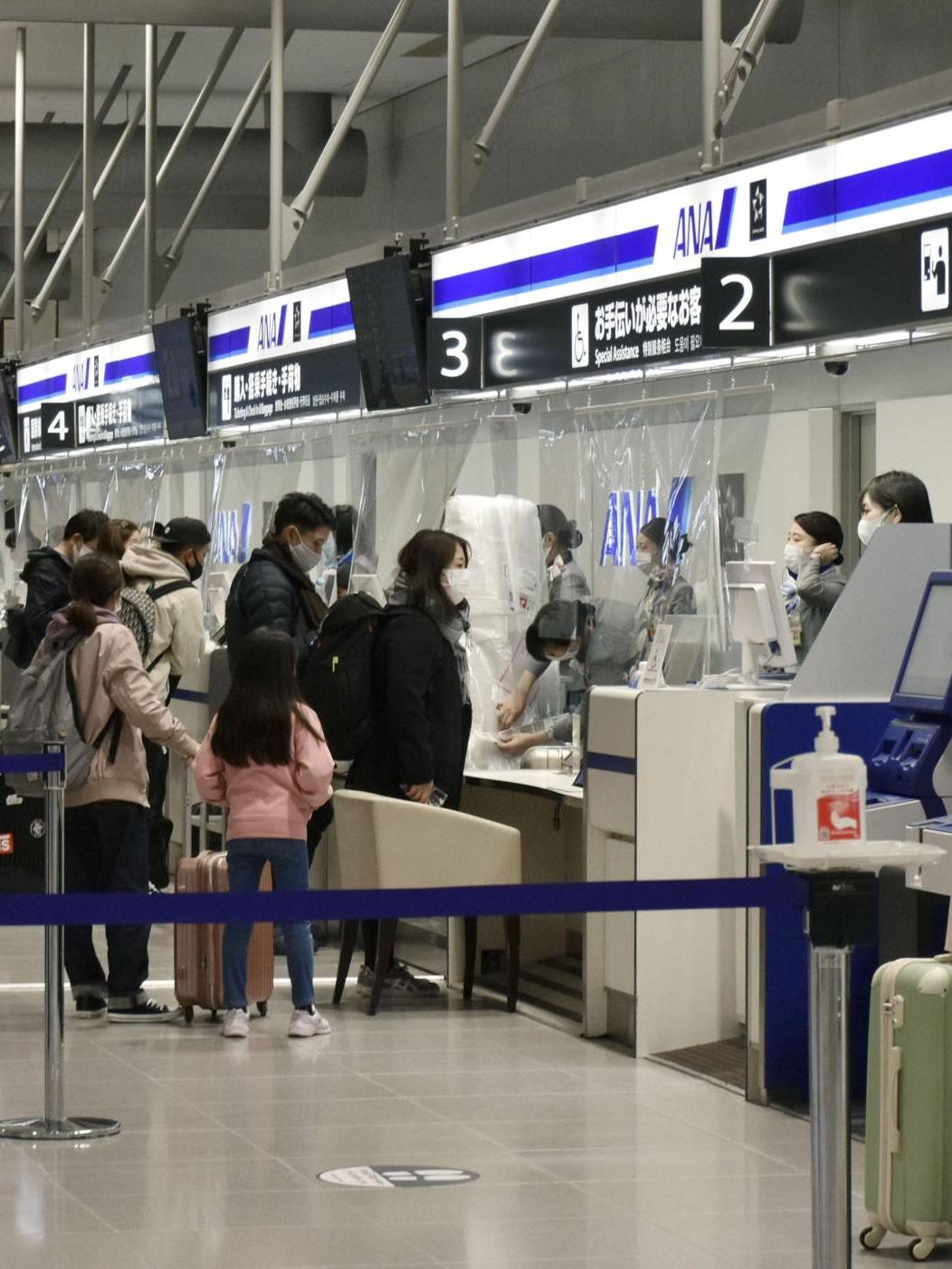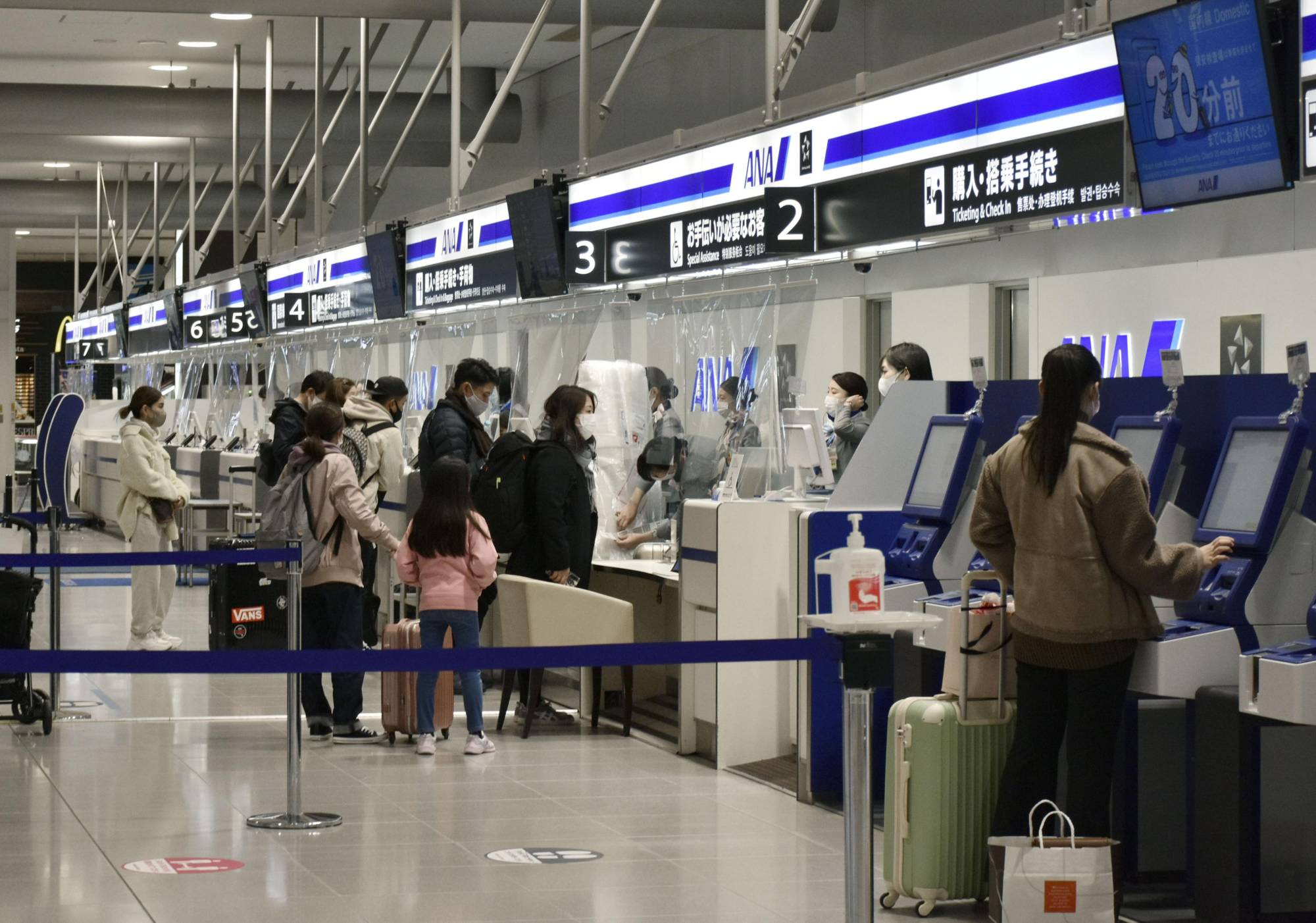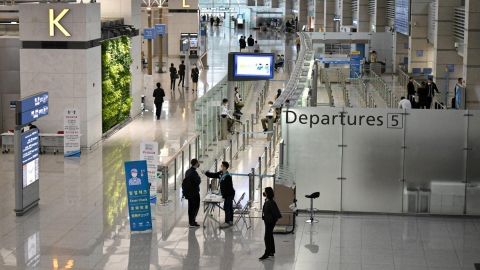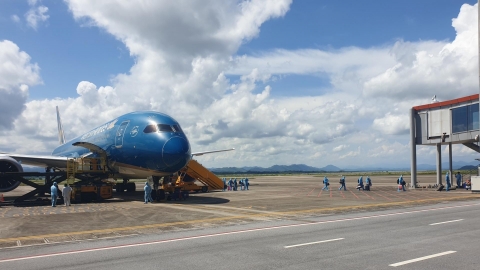Specifically, those traveling to Japan for short-term business, who have received both doses of the Covid-19 vaccine, and have tested negative for the SARS-CoV-2 virus within 72 hours prior to entry, will have their self-quarantine period shortened from 10 days to 3 days. After the 3-day quarantine period, those entering the country must undergo a PCR test; if negative, they can participate in social activities without restrictions.
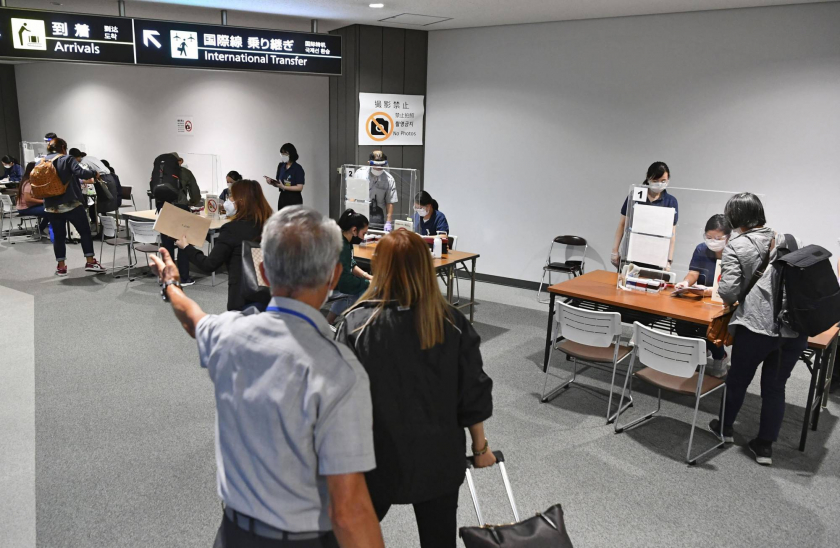
An airport in Chiba Prefecture is instructing arriving passengers to get tested for Covid-19 in September. - Photo: KYODO
According to Nikkei Asia, in addition to those coming to Japan for business purposes, the new regulations will also apply to international students and technical trainees, provided that businesses and universities commit to managing their activities during their self-quarantine period. Furthermore, Japanese citizens returning home after business trips abroad will also be subject to a similar short-term quarantine.
As part of the plan to ease entry restrictions, the Japanese government is expected to increase the number of foreigners allowed to enter the country from 3,500 per day to 5,000 per day, starting at the end of this month.
This measure was introduced amidst the COVID-19 pandemic being well controlled and the country's vaccination rate being quite high, with 70% of the population having been vaccinated. Meanwhile, the country's business community is also calling on the government to ease entry restrictions to restore business activities.
Previously, Japan had tightened entry restrictions since January 2021, following the emergence of highly contagious variants of the SARS-CoV-2 virus in the community. During this time, only foreigners with "special circumstances," such as those with re-entry permits, or the spouses or children of Japanese citizens, were allowed to enter Japan.

 VI
VI EN
EN



